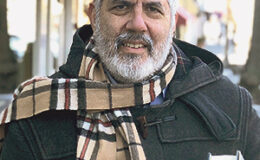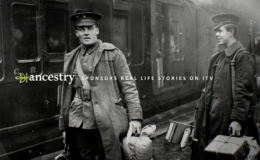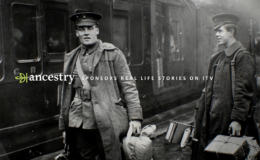

Tom Mooney
Out on a Limb
It goes without saying that recent years have seen a boom in DNA testing.
Police investigators, using DNA samples, build family trees so that they can zero in on suspects in major crimes, often with the help of the suspects’ relatives.
Many individuals take the tests to get health estimates for themselves. With others, the goal is to establish or rule out blood relationships to expand the family through cousinship or to learn parentage.
With genealogists, the primary motive for taking tests is to get information on where to look in the pursuit of one’s ancestry. No matter your motivation, though, it is possible to make mistakes or misuse the tests.
I recently attended a wonderful presentation by Dr. Wendy D. Roth, associate professor of sociology at the University of Pennsylvania. Seated in an auditorium at King’s College, I found myself agreeing fully with Dr. Roth as she made one vital point after another about DNA tests and people’s responses to them.
DNA testing, she pointed out, is highly popular (at least 73 companies since 2003), but the single test is not a final answer to a person’s questions.
For one thing, a test gives probability of race and ethnicity, not a hard and fast percentage. For another, the conclusions of the tests depend heavily on what is in the company’s data base. There are other caveats.
I believe that. In my experience, people can get somewhat different results from the same company’s tests taken at different times. Of course, we are all familiar with siblings who take the same test and find a lot of variation.
There’s another side to the tests. Dr. Roth has extensively studied people’s conceptions of their racial and ethnic identities – and the shock they sometimes experience in confronting challenges to their long-held beliefs. In her study, she said, more than one-third of test takers changed their conceptions of their identities based on the results.
She also has seen test takers play fast and loose with the results, cherry picking what fits their predispositions and ignoring the rest.
My thinking is that the value of the DNA test lies in placing it alongside your genealogy research, which you should have already done. The DNA test can raise questions, offer alternatives and suggest new avenues to explore. So, by all means, get the test. In fact, get several.
A test is not, however, a set of answers in itself. It is just one more tool – though a major and potentially profitable one – in your personal toolkit Dr. Roth has given us a vital corrective.
News Notes: Interested in visiting an international genealogy conference without ever leaving your computer? The 2020 Roots Tech, set for Nov. 5-7 in London, may be accessed online. Go to www.rootstech.org/london, but be ready to translate British money into American. The offerings are varied. Roots Tech is a project of FamilySearch, the free online data base sponsored by the Church of Jesus Christ of Latter-Day Saints (Mormons). The site will also show you how to access seminars from last year’s event.
Speaking of FamilySearch, you never know what new material the organization is going to come out with. Just this week FamilySearch announced (among many documents) 400 years of Spanish marriage records, Pennsylvania Civil War military volunteer records and a veritable blizzard of records of all kinds from Latin America.
Researching New York City ancestors? Ancestry.com just a week ago added thousands of records of all kinds from the five boroughs, supplementing an already large collection.
Tom Mooney is a Times Leader genealogy columnist. Reach him at [email protected]














